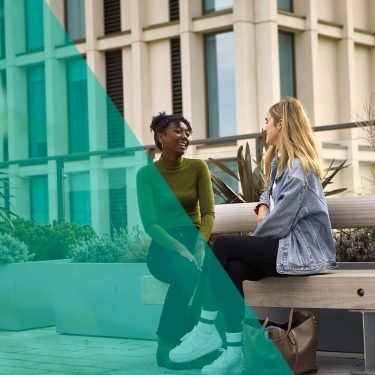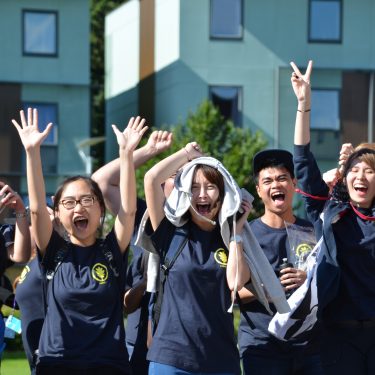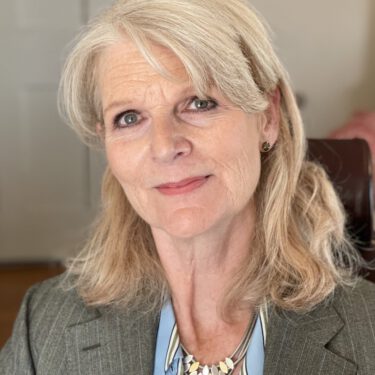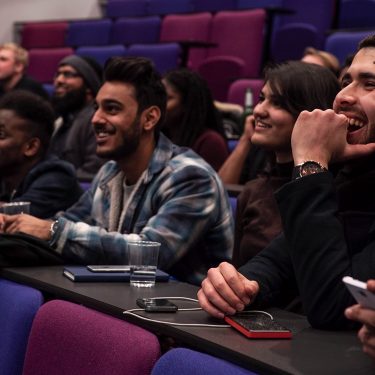Professor Mary Stuart, Vice Chancellor of the University of Lincoln, reflects on our first oral evidence session
I was delighted to be part of the first oral evidence session for the Student Futures Commission last week. We started with one of the biggest issues facing universities as they think about next September and beyond, which is how we build on the enforced mass shift to digital and online learning all institutions have undertaken over the last 12 months. How do we ensure that students are supported coming into our institutions, when the polling we undertook with Group GTI shows that many want a balance of online content mixed with face to face interactions and a broader in-person student experience?
We were pleased to hear from eight really expert witnesses over two separate sessions. The main conclusions that I took, and that the Commission will be reflecting further on, are:
The pandemic has accelerated a switch to online learning that would normally have taken 10/15 years – but the question now is about sustainability and momentum.
Dr Paul Redmond, Director of Student Experience and Enhancement at the University of Liverpool put it best when he said that “the pandemic has turbocharged the future”. Universities have been forced, almost overnight, to manage not just teaching online but also their broader research functions, and the myriad of student services. The consensus was that there had been some benefits to this acceleration: – Professor Sue Rigby, Vice Chancellor of Bath Spa University mentioned that she had been given authorisation instantly to buy a lot of technology for her disadvantaged students, which might have taken months of discussions previously. But while all witnesses supported the continuation of some sort of blended approach from September, they also raised some concerns about what this looks like on a sustainable basis. Teaching online appears to have worked well, but there’s a different story for how well other parts of the university experience have adapted to digital. We know from our Group GTI research that participation in clubs and student societies has plummeted this year. How can we, as a sector, ensure we have the skills and finance to both build blended platforms and also refresh them, make them accessible, and ensure academic staff can use them and convert some of their teaching without huge additional work?
Our witnesses were less concerned about learning loss but felt that more could be done on focussing on transitions into university for new students.
Professor Dave Phoenix, Vice Chancellor of London South Bank University, noted that many of LSBUs students, including those students under 18 in his broader South Bank group, have suffered from social isolation as well as academic loss. Students were notably less confident and starting to have what Dr Paul Redmond described as ‘self-limiting ideas’, struggling to find a sense of belonging. All witnesses were worried about inequity in the circumstances that some school leavers had suffered in the last year. Universities were considering how to staff up pastoral and social support, but this requires resource. Rae Tooth, Chief Executive Officer at Villiers Park, noted that students, particularly from disadvantaged backgrounds, have shown remarkable resilience in their personal lives this year – and it’s now down to institutions to make sure they are given the opportunity they deserve to thrive.
Online teaching has some real benefits, but isn’t – as critics might argue – lower cost or lower effort.
Vicki Stott, incoming Chief Executive of QAA noted that there are significant short and medium term costs and even into the long term. Keeping up the process of quality assurance, enhancement, keeping content up to date, and ensuring it can be delivered in a blended format all requires investment and skill. Professor Danielle George, Associate Vice President of Blended and Flexible Learning at the University of Manchester, discussed how assessment can be modernised, including a greater blend between formative and summative, but that there were new challenges for institutions to tackle around malpractice. Dr Liz Marr, Pro Vice-Chancellor (Students) at the Open University provided evidence that the move to more blended assessments has had benefits in terms of narrowing the awarding of higher-class degrees between white and BME students. Many of our experts highlighted major concerns about staff workload and resilience, as universities adapt not just to the pandemic but to the wider policy landscape in HE.
Young people may be digital natives, but many have still struggled to effectively use digital learning tools.
It is commonly asserted that young people are more adept with digital technology and can switch seamlessly. But of course, not everyone coming to university in September will be young, and many witnesses discussed the issue of digital exclusion. Dr Paul Redmond noted that “we have underestimated how confused students are with online skills”, and Rae Tooth discussed the lack of hardware and broadband that many students she has worked with have suffered in the last year. Some witnesses also discussed staff accessibility and confidence with teaching using online or blended models. Professor Tansy Jessop talked about raised expectations on staff who may feel the need to be ‘always on call’ and the death of the contact hours model. There is a potential as Sam Sanders, Director & Advisory Lead for HE at KPMG argued, for more efficient processes, and more engaged conversations between staff and students, but we must not just assume these will happen organically.
We all left the sessions feeling that we had barely scratched the surface of these issues. But the heartening thing is that it is clear that a tremendous amount of thinking is going on in the sector, and that this is rightly focussed on student experience, and support for staff. I look forward to thinking about how the Commission can help share and amplify this good thinking more widely in the coming months.
The next oral evidence session, on student experience, engagement, and wellbeing, will be on the 9th July. Click here to find out more
Transcripts:
[Part One – Transitions to Learning]
[Part Two – Future of Teaching and Learning in HE]








